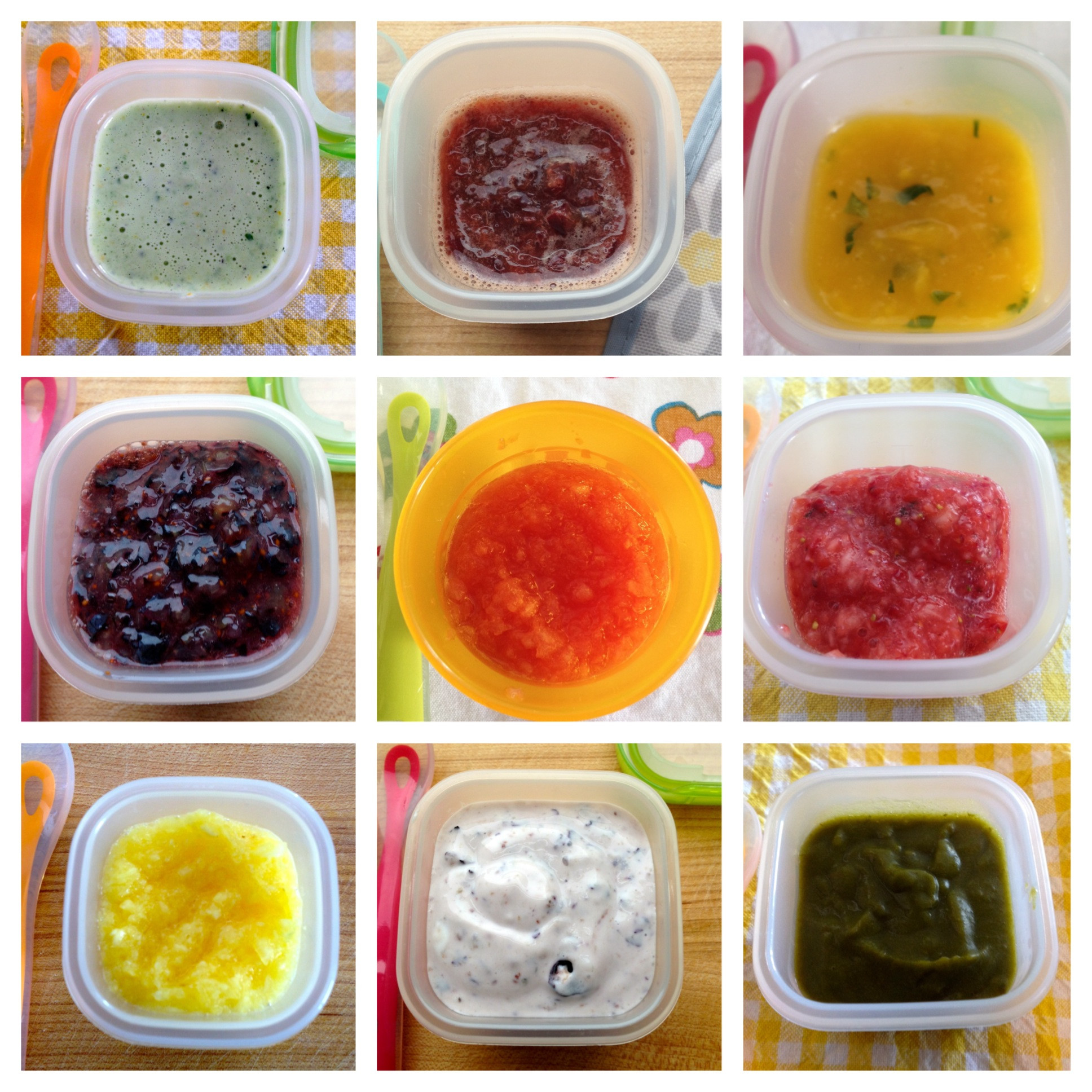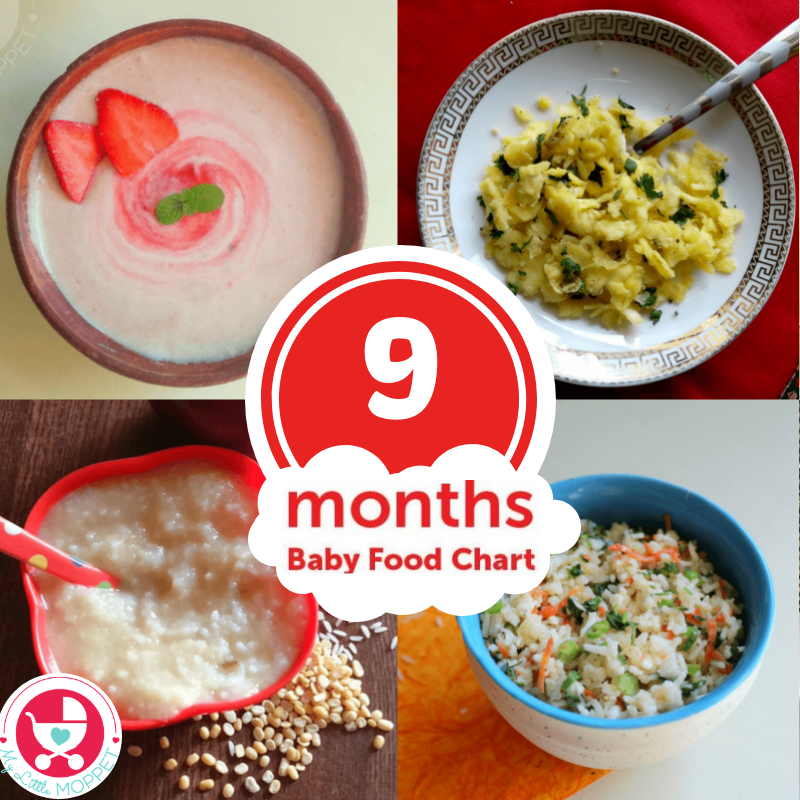Introducing solid foods to your 9-month-old baby is an exciting milestone in their growth and development. Providing nutritious and balanced meals is crucial for their overall well-being, and homemade baby food offers a wealth of benefits compared to store-bought options.
This guide will delve into the types of foods suitable for 9-month-old babies, provide a sample meal plan, and offer a collection of easy-to-follow recipes. We’ll also discuss best feeding practices and tips to encourage self-feeding and promote healthy eating habits.
Introduction
Providing nutritious and balanced meals is crucial for the healthy growth and development of 9-month-old babies. Their bodies undergo rapid physical and cognitive changes, demanding a wide range of nutrients to support these transformations.
Homemade baby food offers several advantages over store-bought options. It allows parents to control the ingredients, ensuring the absence of added sugars, salts, or preservatives that may be harmful to young bodies. Additionally, homemade baby food is typically fresher, preserving the natural flavors and nutrients of the ingredients.
Types of Foods for 9-Month-Olds
As your baby enters the 9-month mark, it’s time to expand their culinary horizons and introduce a wider variety of foods. At this stage, babies are developmentally ready for a range of textures and flavors, and their nutritional needs are becoming more complex.The
recommended food groups for 9-month-old babies include fruits, vegetables, grains, and proteins. Each food group provides essential nutrients that contribute to the baby’s growth and development.
Fruits
Fruits are a great source of vitamins, minerals, and antioxidants. They are also a good source of natural sugars, which can provide energy for your baby. Some recommended fruits for 9-month-olds include:
- Bananas
- Apples
- Pears
- Berries (such as strawberries, blueberries, and raspberries)
- Mangoes
- Peaches
Vegetables
Vegetables are a good source of fiber, vitamins, and minerals. They can also help to promote healthy digestion. Some recommended vegetables for 9-month-olds include:
- Carrots
- Sweet potatoes
- Green beans
- Peas
- Broccoli
- Cauliflower
Grains
Grains are a good source of carbohydrates, fiber, and iron. They can also help to keep your baby feeling full and satisfied. Some recommended grains for 9-month-olds include:
- Rice
- Oatmeal
- Pasta
- Bread
- Cereal
Proteins
Proteins are essential for building and repairing tissues. They are also a good source of iron, zinc, and other nutrients. Some recommended proteins for 9-month-olds include:
- Meat (such as chicken, beef, and pork)
- Fish (such as salmon, tuna, and cod)
- Beans
- Lentils
- Yogurt
- Cheese
Meal Planning for 9-Month-Olds

Meal planning for a 9-month-old baby is an important part of ensuring they get the nutrients they need to grow and develop properly. It’s also a great way to introduce them to new flavors and textures. When planning meals for your 9-month-old, it’s important to keep in mind their individual needs and preferences.
Some babies may be ready for more solid foods than others, so it’s important to start slowly and gradually increase the amount of solids you offer them.It’s also important to make sure that your baby is getting a variety of nutrients from their diet.
This means including foods from all food groups, including fruits, vegetables, grains, dairy, and protein. You can also start to offer your baby small amounts of healthy fats, such as avocado or olive oil.Portion sizes are also important to consider when meal planning for a 9-month-old baby.
A good rule of thumb is to offer your baby about 1/4 to 1/2 cup of food at each meal. You can adjust the portion size based on your baby’s appetite and how much they are eating.Here is a sample meal plan for a 9-month-old baby:Breakfast* Oatmeal with mashed banana and cinnamon
- Yogurt with fruit puree
- Sc scrambled eggs with whole-wheat toast
Lunch* Mashed sweet potatoes with peas and chicken
- Pureed carrots and parsnips with beef
- Quinoa with lentils and vegetables
Dinner* Salmon with roasted vegetables
- Chicken stir- fry with brown rice
- Lentil soup with whole-wheat bread
Snacks* Fruit (such as bananas, apples, or pears)
- Vegetables (such as carrots, celery, or cucumbers)
- Yogurt
- Whole-wheat toast
It’s important to note that this is just a sample meal plan, and you may need to adjust it based on your baby’s individual needs and preferences. It’s also important to talk to your pediatrician about your baby’s specific dietary needs.
Recipes for 9-Month-Olds
Diversifying your baby’s diet at 9 months is crucial for their growth and development. Here’s a collection of easy-to-follow recipes that cater to your little one’s nutritional needs and taste buds.
Purees
| Recipe Name | Ingredients | Instructions | Serving Size |
|---|---|---|---|
| Apple Puree | 1 peeled and cored apple | Steam the apple until soft. Mash or puree until smooth. | 1/2 cup |
| Banana Puree | 1 ripe banana | Mash the banana with a fork or spoon. | 1/2 cup |
| Carrot Puree | 1 peeled and chopped carrot | Steam the carrot until soft. Puree until smooth. | 1/2 cup |
Mashes
| Recipe Name | Ingredients | Instructions | Serving Size |
|---|---|---|---|
| Sweet Potato Mash | 1 peeled and cubed sweet potato | Boil the sweet potato until soft. Mash until smooth. | 1/2 cup |
| Avocado Mash | 1 ripe avocado | Scoop out the avocado flesh and mash with a fork. | 1/4 cup |
| Pea Mash | 1 cup frozen peas | Thaw the peas and mash with a fork or spoon. | 1/2 cup |
Finger Foods
| Recipe Name | Ingredients | Instructions | Serving Size |
|---|---|---|---|
| Banana Chips | 1 ripe banana | Slice the banana into thin chips and bake at 200°F for 2 hours. | 1/4 cup |
| Carrot Sticks | 1 peeled and sliced carrot | Cut the carrot into sticks about 2 inches long. | 1/4 cup |
| Whole Wheat Toast | 1 slice whole wheat bread | Toast the bread and cut into small strips. | 1/2 slice |
Feeding Tips for 9-Month-Olds
Feeding a 9-month-old baby is an exciting and important part of their development. By this age, most babies are ready to explore a wider variety of foods and flavors. However, it is still important to follow some basic feeding practices to ensure that your baby is getting the nutrients they need and is eating safely.
Feeding Schedule
Most 9-month-old babies need to eat three meals and two to three snacks per day. The amount of food your baby eats at each meal will vary depending on their individual appetite and activity level. It is important to offer your baby a variety of foods from all food groups at each meal.
Introducing New Foods
When introducing new foods to your baby, it is important to do so gradually. Start by offering small amounts of the new food and watch for any signs of an allergic reaction. If your baby does not show any signs of an allergy, you can gradually increase the amount of the new food you offer.
Food Allergies
If your baby shows any signs of a food allergy, such as hives, swelling, or difficulty breathing, stop giving them the food immediately and call your doctor. Food allergies can be serious, so it is important to get medical help as soon as possible.
Self-Feeding
At 9 months old, many babies are starting to show an interest in self-feeding. This is a great way for them to develop their fine motor skills and independence. You can encourage self-feeding by offering your baby finger foods, such as soft fruits, vegetables, or pieces of bread.
Healthy Eating Habits
It is important to start teaching your baby healthy eating habits from a young age. This includes making sure that your baby is eating a variety of foods from all food groups, limiting sugary drinks and processed foods, and avoiding overfeeding.
By following these tips, you can help your baby develop healthy eating habits that will last a lifetime.
Last Recap

Remember, every baby is unique, and their individual needs may vary. Consult with your healthcare provider or a registered dietitian for personalized advice on your baby’s specific dietary requirements. With a little planning and preparation, you can ensure that your 9-month-old baby receives the nourishment they need to thrive and grow.
Answers to Common Questions
What are some common food allergies in 9-month-old babies?
Common food allergies in babies include milk, eggs, peanuts, tree nuts, soy, wheat, and shellfish.
How can I introduce new foods to my baby safely?
Start by introducing one new food at a time and wait 3-5 days before introducing another new food. This allows you to monitor for any allergic reactions or digestive issues.
How often should I feed my 9-month-old baby?
Most 9-month-old babies need to eat 3 meals and 2-3 snacks per day. The amount and frequency of feedings may vary depending on your baby’s individual needs.
